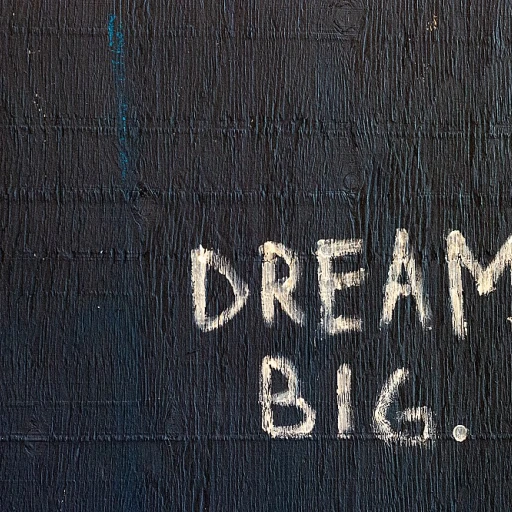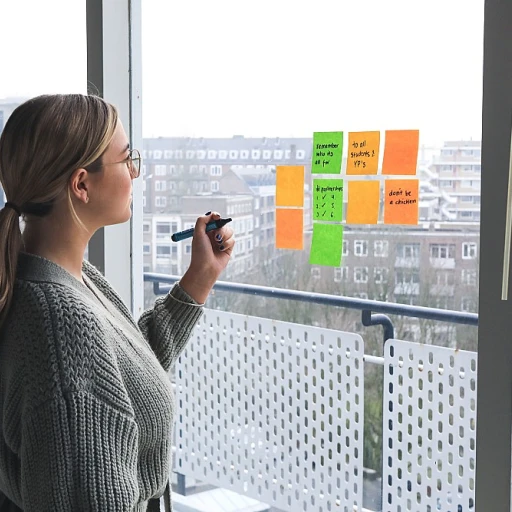
Understanding the significance of hr professionals day
Recognizing the Daily Impact of HR Professionals
Every day, human resources professionals play a vital role in shaping the work environment and company culture. Their responsibilities go far beyond paperwork and compliance. From supporting employee engagement to fostering professional development, HR teams are the backbone of any organization. The work of these resource professionals is often celebrated on appreciation days, but their impact is felt throughout the year.
In many companies, a professional day dedicated to HR is a chance to celebrate human resource professionals and their hard work. These events highlight the importance of team building, mental health, and employee appreciation. Whether it’s through a thoughtful gift, a team lunch, or a post on social media, organizations use these moments to show gratitude for the dedication of their HR teams.
- Employee support: HR professionals are often the first point of contact for employees seeking guidance or support, making them essential to a healthy workplace.
- Development and management: They drive professional development initiatives, ensuring that employees and team members have opportunities to grow.
- Culture and engagement: By promoting a positive company culture and encouraging employee engagement, HR teams help create a productive and inclusive work environment.
Organizations that recognize and celebrate professional achievements in HR contribute to a stronger, more resilient workforce. As the landscape of HR job interviews continues to evolve, the role of these professionals becomes even more significant. For those interested in learning how to succeed in this dynamic field, exploring how to succeed in HR job interviews can provide valuable insights into the skills and mindset needed for success.
The evolving landscape of hr job interviews
Shifting Expectations in HR Interviews
The landscape of HR job interviews is constantly evolving, reflecting broader changes in the workplace and company culture. Professionals in human resources are expected to do more than just fill positions. Today, their role is about building a positive work environment, supporting employee engagement, and fostering professional development across the organization.
With the growing focus on mental health, diversity, and employee appreciation, HR professionals must adapt their interview techniques. They are not only evaluating candidates’ skills but also their fit with the team and the company’s values. This shift means interviews are becoming more holistic, considering both the technical and human aspects of each candidate.
Modern Tools and Approaches
- Virtual Interviews: The rise of remote work has made virtual interviews a standard practice. HR teams need to be comfortable with digital platforms and ensure a smooth, professional experience for candidates.
- Behavioral Assessments: To better understand how potential employees might contribute to the workplace, many organizations use behavioral and situational questions. These help assess alignment with the company’s culture and values.
- Focus on Soft Skills: Beyond technical expertise, HR professionals are looking for qualities like adaptability, teamwork, and emotional intelligence. These traits support a healthy work environment and contribute to long-term success.
- Data-Driven Decisions: Human resource teams increasingly rely on data and analytics to inform their hiring decisions, tracking metrics related to employee engagement and professional development.
As the role of HR professionals expands, so does the need for continuous learning and adaptation. Celebrating resources professionals and their hard work is more important than ever, especially on days like professional day or appreciation day. These moments of recognition help reinforce the value of HR in shaping a positive company culture and supporting team members.
For those looking to stay ahead in this evolving field, practical advice and insights can make a real difference. Explore how to succeed in HR job interviews for actionable tips and strategies tailored to today’s workplace challenges.
Common challenges faced by HR professionals during interviews
Real-World Obstacles in HR Interviewing
HR professionals face a unique set of challenges during job interviews that go beyond simply asking questions and evaluating answers. These obstacles can impact the day-to-day work of the human resources team and influence the overall employee experience within the organization.- Balancing Objectivity and Company Culture: One of the most common challenges is maintaining objectivity while ensuring candidates align with the company culture. HR professionals must assess whether a potential employee will thrive in the workplace, contribute to team building, and support the organization’s values. This requires a deep understanding of both the professional and human aspects of the role.
- Managing Bias: Even experienced resource professionals can struggle with unconscious bias. Ensuring fair and equitable interviews is essential for employee engagement and professional development. HR teams must constantly reflect on their processes to create a work environment that celebrates diversity and inclusion.
- Time Constraints and Workload: The day of an HR professional is often packed with interviews, paperwork, and management tasks. Juggling these responsibilities while providing a positive candidate experience can be overwhelming, especially during peak hiring seasons or appreciation days when the focus is also on celebrating human resources professionals’ hard work.
- Adapting to Evolving Expectations: As the landscape of HR interviews evolves, professionals must stay updated on best practices, legal requirements, and new technologies. This ongoing development is crucial for maintaining credibility and trust within the company and among employees.
- Ensuring Consistency Across Teams: In larger organizations, different team members may conduct interviews, leading to inconsistencies in evaluation and feedback. HR professionals need to implement clear guidelines and training to ensure a unified approach that supports the organization’s resource management goals.
Effective strategies for conducting insightful interviews
Preparing for Meaningful Conversations
Effective HR professionals know that a successful interview is more than just asking questions. Preparation is key. Before meeting candidates, review their backgrounds and align your questions with the company’s values and culture. This approach helps create a work environment where employees feel valued and understood. It also shows appreciation for the candidate’s time and effort, reflecting the organization’s commitment to professional development and employee engagement.Asking the Right Questions
To gain deeper insights into a candidate’s fit for the team, focus on open-ended questions. These encourage candidates to share their experiences and demonstrate their problem-solving skills. Consider asking about:- How they contributed to team building or celebrated professional milestones
- Ways they have supported employee mental health or workplace culture
- Examples of adapting to changes in company culture or management
Active Listening and Observation
During the interview, pay close attention to both verbal and non-verbal cues. Active listening allows HR professionals to pick up on subtle indicators of a candidate’s emotional intelligence and resourcefulness. Observing how candidates respond under pressure or discuss previous experiences can reveal much about their potential contribution to the team and the broader human resources landscape.Leveraging Technology and Feedback
Modern HR professionals use digital tools and social media to streamline the interview process. Video interviews, online assessments, and feedback platforms can help evaluate candidates more efficiently. Gathering feedback from team members involved in the process also supports continuous improvement and helps build a culture of appreciation and development within the organization.Fostering a Positive Candidate Experience
Remember, every interview is an opportunity to celebrate human potential and reinforce the company’s reputation as a great place to work. Clear communication, timely follow-ups, and genuine appreciation for each candidate’s effort contribute to a positive experience. This not only benefits the individual but also strengthens the company’s brand as a resource professional and employer of choice in the competitive workplace environment.The role of emotional intelligence in HR interviews
Why Emotional Intelligence Matters in Interviews
Emotional intelligence is a vital skill for human resources professionals during job interviews. It goes beyond simply asking questions and evaluating answers. Professionals with strong emotional intelligence can read non-verbal cues, manage their own reactions, and create a welcoming environment for candidates. This ability helps to foster trust and openness, which is essential for understanding the true potential of an employee and ensuring a good fit within the company culture.
Key Components of Emotional Intelligence in HR Interviews
- Self-awareness: Recognizing your own emotions and biases during interviews helps maintain objectivity and fairness.
- Empathy: Understanding the feelings and perspectives of candidates allows professionals to connect on a human level, making the interview process less stressful for everyone involved.
- Social skills: Building rapport with candidates and team members supports a positive work environment and reinforces the organization’s commitment to employee engagement and appreciation.
- Self-regulation: Managing stress and staying calm under pressure ensures that interviews remain professional and productive, even when unexpected challenges arise.
Benefits for the Organization and Employees
When HR professionals apply emotional intelligence, they contribute to a more inclusive and supportive workplace. This approach not only helps identify candidates who align with the company’s values but also strengthens the overall team dynamic. Employees feel valued and understood, which can boost morale, encourage professional development, and enhance employee engagement. Over time, this focus on emotional intelligence supports a culture of appreciation and continuous improvement, making the workplace a better environment for everyone.
Practical Tips for Developing Emotional Intelligence
- Practice active listening during interviews to fully understand candidates’ responses.
- Reflect on your own emotional triggers and work on managing them before and during interviews.
- Encourage feedback from team members and employees to improve your approach and support professional growth.
- Participate in professional development programs focused on communication and emotional intelligence.
By prioritizing emotional intelligence, human resource professionals can celebrate their hard work and dedication, not just on professional day or appreciation day, but every day they contribute to building a positive company culture and a thriving organization.
Building a culture of continuous improvement in HR interviewing
Encouraging Growth Through Feedback and Reflection
A strong HR team thrives on continuous improvement, especially when it comes to job interviews. Professionals in human resources know that every interview is an opportunity to learn, adapt, and refine their approach. Regular feedback sessions, both within the HR team and from candidates, help identify what works and what needs adjustment. This habit of reflection not only supports professional development but also strengthens the overall company culture.- Schedule regular debriefs after interview cycles to discuss successes and challenges
- Encourage open dialogue among team members to share insights and best practices
- Use feedback from candidates to enhance the interview experience and promote employee engagement
Celebrating Achievements and Fostering Appreciation
Recognizing the hard work of HR professionals is essential for maintaining motivation and morale. Organizations can celebrate professional milestones, such as a successful hiring season or innovative interview techniques, through appreciation days or small team-building events. These moments of recognition help reinforce the value of human resource professionals and their impact on the workplace.- Host an appreciation day to celebrate human resources professionals and their contributions
- Share achievements on social media to highlight the team's dedication and expertise
- Offer thoughtful gifts or tokens of appreciation to acknowledge hard work
Investing in Learning and Development
Continuous learning is at the heart of effective HR management. Providing access to professional development resources, such as workshops or online courses, empowers employees to stay updated on the latest interview trends and techniques. This investment not only benefits individual team members but also enhances the organization’s ability to attract and retain top talent.| Development Activity | Impact on HR Interviews |
|---|---|
| Workshops on interview skills | Improves consistency and fairness in candidate evaluation |
| Team building exercises | Strengthens collaboration and communication among HR professionals |
| Mental health awareness training | Promotes a supportive work environment for both employees and candidates |













